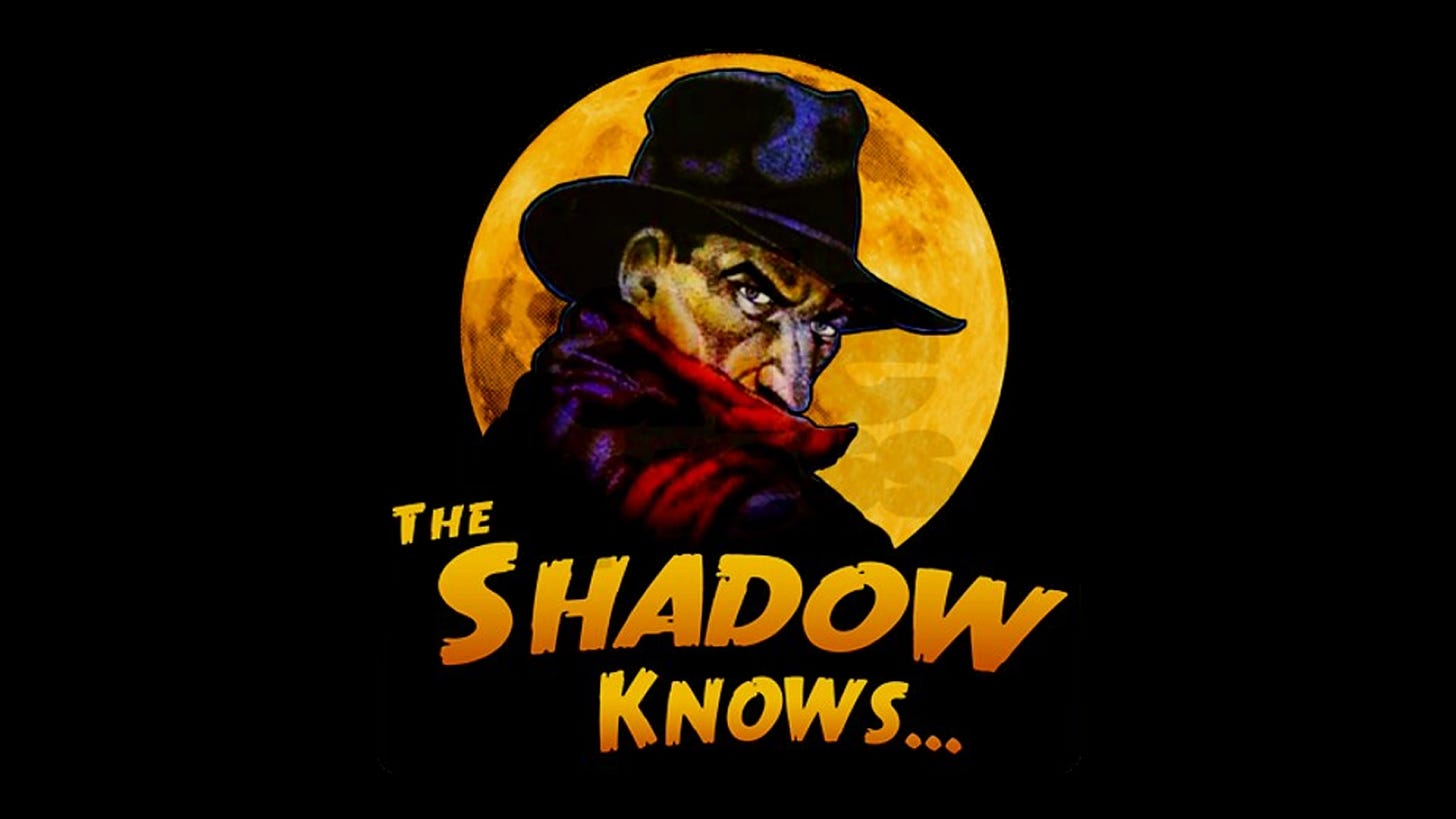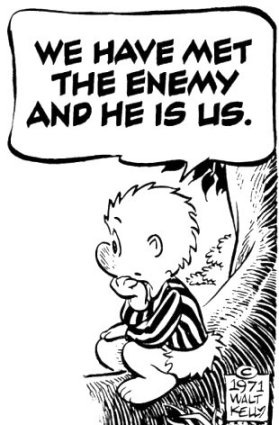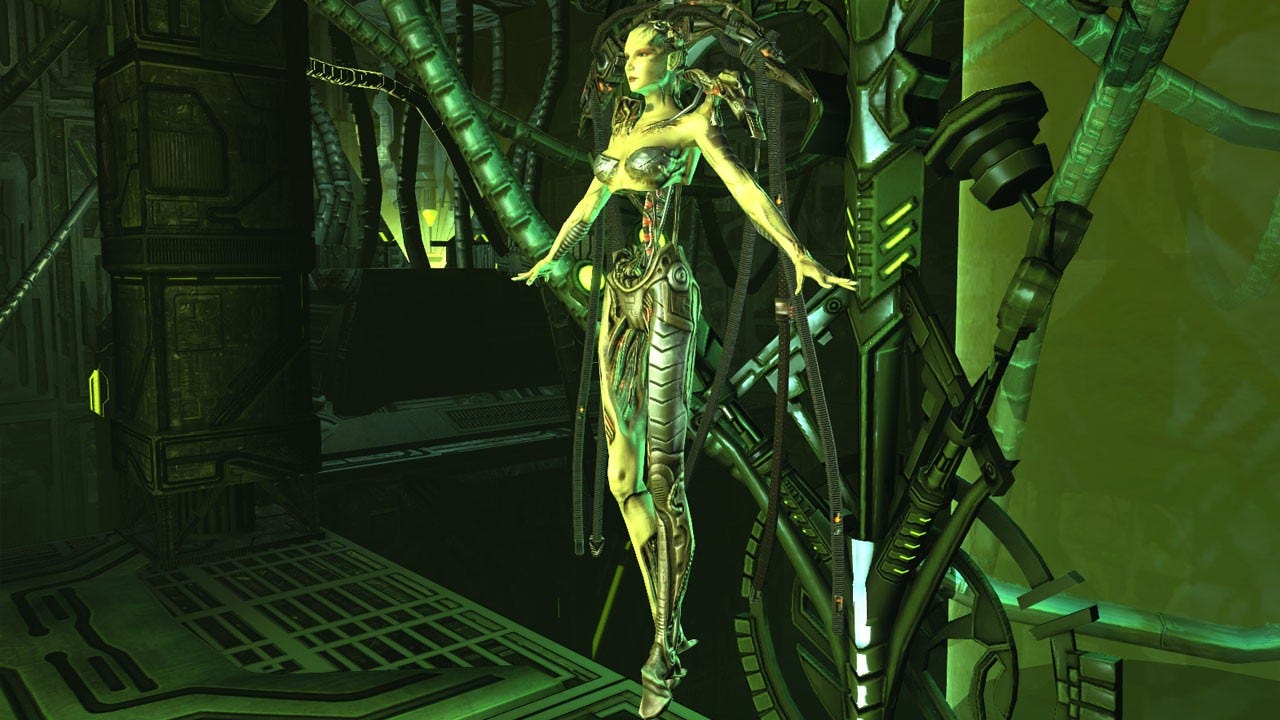The Shadow is a graphic novel character and radio program that premiered in 1937. We borrowed the title of this essay from the show’s opening line but the essay itself is about something else, namely The Problem of Evil or how to reconcile the existence of evil with an all-powerful loving God?
According to the traditional Western Biblical worldview, metaphysical forces of light, allied with God, eternally wage war against the forces of darkness seduced into servitude by the Devil. Fundamentalists interpret this literally. Rational Spirituality views it as metaphor with pedagogic value.
“And I will put enmity between you and the woman, and between your offspring and hers; he will crush your head, and you will strike his heel.” (Genesis 3:15, Garden of Eden)
The Problem of Evil was recently summarized here on Substack by The Neo-Feudal Review.
The Rational Spirituality thesis argues that the potential for evil wiles away in the Stygian corners of everyone’s psyche until activated by the Shadow archetype, a Jungian construct characterizing the dark, repressed side of human nature, i.e. our inner devil or demon. Jung taught that raising the repressed guilt-ridden aspects of one’s shadow side into consciousness eviscerated them and advanced the Self along the path to spiritual wholeness and psychological well being.
One does not become enlightened by imagining figures of light, but by making the darkness conscious.
The process of “making the darkness conscious” is known as shadow work in analytical psychology. There are a number of excellent books and guides available on this topic, which is essential to spiritual growth. Shadow work is the loving embrace of self-forgiveness and self-acceptance. It’s when we finally stop blaming others and stop projecting our own shortcomings. In other words, it’s when we finally agree to own all aspects of our shadow, as unpleasant as they may be.
Everyone carries a shadow, and the less it is embodied in the individual’s conscious life, the blacker and denser it is. If an inferiority is conscious, one always has a chance to correct it.. But if it is repressed and isolated from consciousness, it never gets corrected.
Black and dense = proclivity toward evil. Shadow archetypes can express themselves individually, collectively and institutionally and are capable of possessing their host. Familiar examples of individual Shadow possession are David Koresh, Jim Jones and Charles Manson. Two of the more dangerous examples of institutionalized evil today are found in the World Economic Forum and the World Health Organization. As an exemplar of collective possession, I nominate the Climate Crisis Death Cult.
We have previously examined other culprits responsible for what ails modern society. Some mention Wietko, while others point to Mass Formation. Whatever its root cause, Shadow archetypal possession always involves lies, deceptions and manipulations either from within our own self, such as Koresh and Jones, from other similarly affected individuals or from cultural institutions such as governments and media. (I plan to write a separate piece on the Vatican.)
As discerning, self-aware individuals fully awakened to reality and forever vigilant for nascent false narratives, we must continually strive for keen discernment and critical thinking lest we too become ensnared, enslaved and hopelessly deluded components of the Borgish hive-mind collective (read: New World Order), as envisaged below.
Shadow (Inner Demon) Characteristics
The Shadow seeks to dominate and control
The Shadow seeks fragmentation rather than wholeness
The Shadow is narcissistic and divisive
The Shadow invokes stealth and covert means
The Shadow engenders conflict and confusion







Very nice post, R. Toney. It reminds me of one of my favorite Solzhneitzyn quotes in The Gulag Archipelago: “If only there were evil people somewhere insidiously committing evil deeds, and it were necessary only to separate them from the rest of us and destroy them. But the line dividing good and evil cuts through the heart of every human being. And who is willing to destroy a piece of his own heart? During the life of any heart this line keeps changing place; sometimes it is squeezed one way by exuberant evil and sometimes it shifts to allow enough space for good to flourish. One and the same human being is, at various ages, under various circumstances, a totally different human being. At times he is close to being a devil, at times to sainthood. But his name doesn’t change, and to that name we ascribe the whole lot, good and evil.”
How bad is it to be a borgish hivemind? There might even be an upside to borgishness in humans. I'm only half joking. After all, aren't we already entrapped, enslaved and seriously deluded? People seem to want to just roll with it anyways.